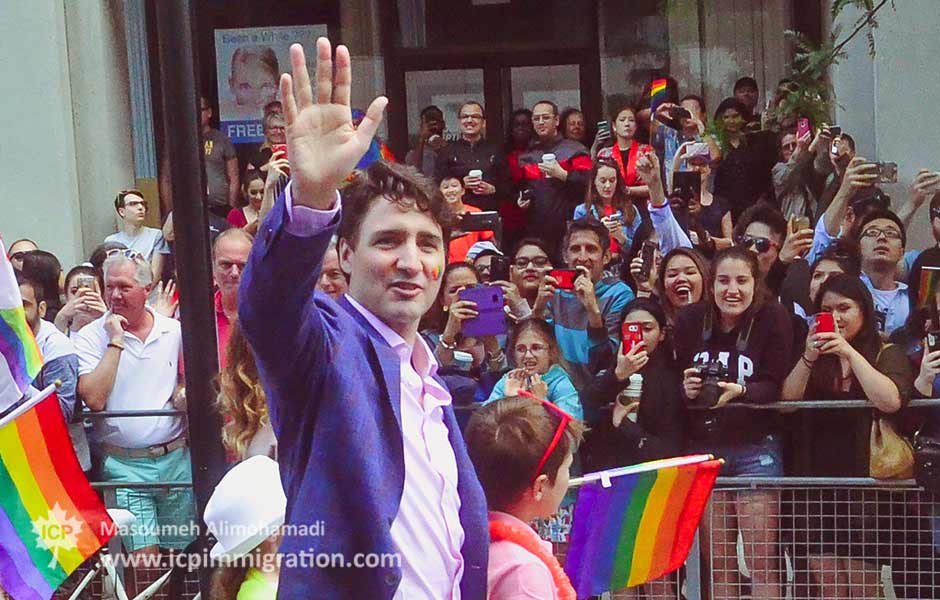Prime Minister Justin Trudeau has stated that he is jealous of individuals and families around the world who make the decision to immigrate to Canada, emphasizing that people, like him, who are born Canadian take for granted the advantages of being Canadian.
Trudeau was speaking with CTV journalist Anne-Marie Mediwake in a broadcast that aired on the eve of Canada Day. Mediwake’s parents immigrated from Sri Lanka in the 1970’s after hearing then Prime Minster Pierre Elliot Trudeau, father of the current Prime Minister, speak in their country.
When told this, the current Prime Minister said:
“One of the great reminders to me, as proud as a I am of being Canadian, as proud as I am of Canada, is I didn’t get to choose this place. I was born here, and I can almost take it for granted. Anytime I meet people who got to make the deliberate choice, or whose parents chose Canada, I’m jealous. Because I think being able to choose it rather than being Canadian by default is an amazing statement of attachment to Canada . . . you chose this country, this is your country more than it is for others because we take it for granted, we default into this place. And I think understanding that power of building a country that is made of people who chose, or whose ancestors chose, to build a new life here is really, really exciting . . . We are celebrating diversity as a source of strength.”
Trudeau’s comments come at a time when leaders of other high-profile developed nations are choosing a narrower definition of nationhood. In the United States and the United Kingdom, President Donald Trump and Prime Minister Theresa May, respectively, recently came out on top in election campaigns that focused on reducing immigration levels. On the other side of the globe, Australian Prime Minister Malcolm Turnbull abolished the popular 457 visa, citing an “Australians first” approach to immigration. The government of New Zealand soon followed suit by implementing more restrictive policies in April.
Meanwhile, since the spring Trudeau’s team in Canada has made improvements to its Express Entry immigration selection system, brought in an entirely new fast-track work permit stream for certain foreign workers, passed a new law that makes Canadian citizenship easier and quicker to obtain, and stated that it will take in at least 300,000 new permanent residents per year over the coming years.
These latest measures are built on a foundation whereby Canada welcomes economic migrants, refugees, and those seeking to reunite with family members in Canada in ever-increasing numbers.
Trudeau aided by the fact that the Canadian public largely supports an immigration policy that welcomes diverse peoples in large numbers. Political parties in Canada are largely supportive of such a policy, and the few attempts that have been made to stall or reverse Canada’s pro-immigration approach have failed. In the recent Conservative Party leadership contest, the one candidate who built her campaign around changing this policy fundamentally, Kellie Leitch, received a tiny sliver of the vote, as party members roundly rejected her program.
In the 150 years since Canada was established as a confederation, more than 17 million immigrants have arrived as landed immigrants. Many more have come as foreign workers or international students. Canada’s official policy of multiculturalism, its bilingual society, security, and economic prosperity are just a few of the reasons why international migrants look to Canada as their new home.




